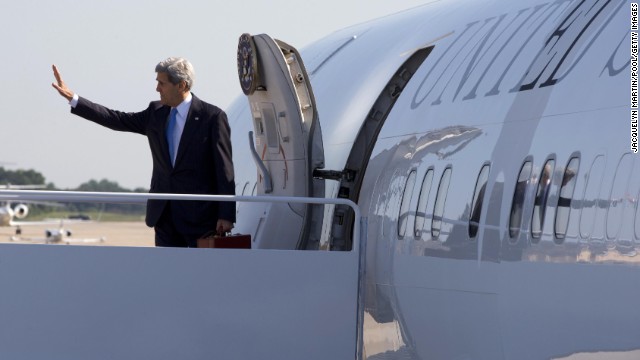
Foreign ministers from 11 countries meeting here cited the presence of foreign fighters in the country and the alleged use of chemical weapons by Damascus in agreeing Saturday to increase arms shipments to the rebels.
In a statement, the
ministers representing the "London 11," an offshoot of the "Friends of
Syria," said they would "provide urgently all the necessary materiel and
equipment to the opposition on the ground, each country in its own way
in order to enable them to counter brutal attacks by the regime and its
allies and protect the Syrian people."
The weapons are to be funneled through the opposition Free Syrian Army's Supreme Military Council (SMC).
The alleged use of
chemical weapons, which President Bashar al-Assad has denied, and the
involvement of Hezbollah and Iran left the participants no choice "but
to provide greater assistance of one kind or another, each nation making
its own decision as to what it is comfortable doing, but all of them
committing to do more to help the Syrian opposition," U.S. Secretary of
State John Kerry told reporters.
But in their statement on
Saturday, the ministers reiterated their call for negotiations that
would lead to the establishment of a transitional governing body "that
excludes the central figures and associates whose hands are stained with
blood. In this context, Bashar al-Assad has no role in the transitional
governing body or thereafter."
"The implementation of
Geneva-1 is the goal of Geneva-2, and that is a transition government
with full executive authority, which gives the Syrian people as a whole,
everybody in Syria, the chance to have a new beginning where they
choose their future leadership," Kerry told CNN last week.
Next week,
Undersecretary of State Wendy Sherman and Ambassador Robert Ford will
meet with their Russian counterparts and Lakhdar Brahimi, the U.N.and
Arab League special envoy to Syria, to set a date for the meeting, Kerry
said.
The broadening of the
conflict and the possibility that it will devolve into a sectarian war
raise concerns that the conflict will widen beyond Syria's borders, he
said. "It is our hope that, indeed, we will avoid a regional war."
Kerry noted that Moscow
has been sending arms to the government in Damascus, but said he
believed that President Vladimir Putin was prepared to support the
Geneva meeting.
The diplomatic group,
known as the London Eleven, met in Doha to figure out how to shift the
balance of power on the Syrian battlefield away from al-Assad and toward
the opposition.
Al-Assad has the upper
hand militarily, due to his access to air power and heavy artillery,
including tanks. Rebel forces have no air power and few heavy weapons.
But Syrian rebels said
this week that they have received anti-tank and anti-aircraft missiles
from "brotherly nations that support the Syrian revolution."
Washington is providing
more than $815 million in humanitarian assistance to victims of the
conflict and has committed $250 million in nonlethal aid to the Syrian
opposition.
The CIA is training Syrian rebel forces at bases in Jordan, according to senior U.S. officials.
Combatants from other countries are also aiding the opposition.
Foreign Sunni militants
are joining the ranks of the rebels. One of the largest groups, the
al-Nusra Front, is affiliated with al Qaeda in neighboring Iraq.
Some 5,000 Shiite
fighters from Hezbollah have taken up arms in Syria in support of the
government, according to Sen. John McCain, R-Arizona.
The 11 comprise the
United States, Britain, France, Germany, Italy, Turkey, Egypt, Jordan,
Qatar, Saudi Arabia and the United Arab Emirates.
The meeting is the first
leg of a tour of the Middle East and Asia by Kerry that will include
visits to U.S. allies Israel and India.
No comments:
Post a Comment